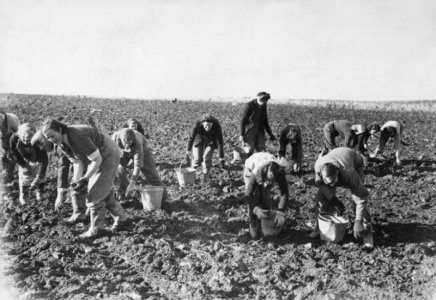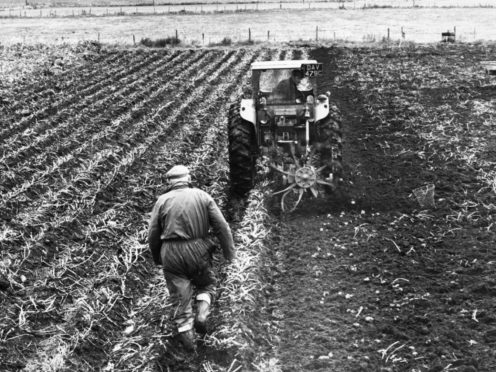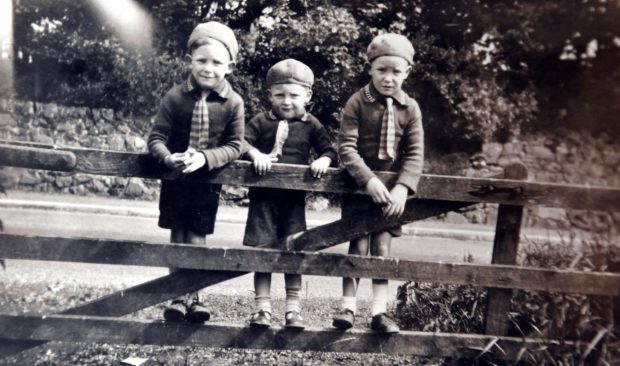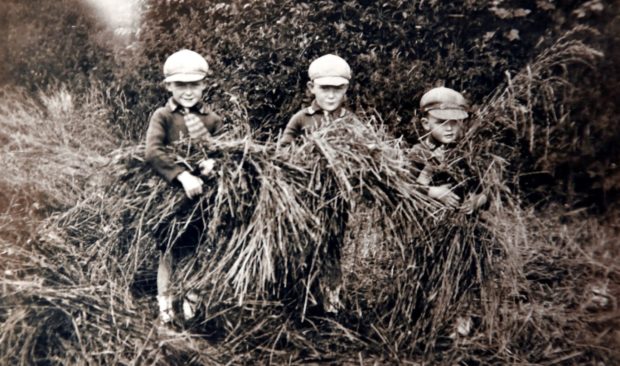I am curious if there are stories about how the potatoes were harvested on the tattie-picking days.
It was back-breaking work for pickers who took the chance to earn extra income ‘tattie howkin’.

Schools closed during the Second World War to allow schoolchildren to supplement the labour supply to get the vitally important potato crop secured.
From first light children were out in frosty fields but they and their families were happy for the money — and a hard worker could make a decent day’s pay.
Extra income
Cyril, Sandy and Grant Caseby worked for local farmers in Newmills in Fife to provide extra income for the family.
Tattie picking gave Cyril and his family extra income.
Cyril, who is now 90, said: “Our father had been invalided home from Africa and coupled with his war injuries was not in a position to do full-time work for a long time and it was hard for our mother to bring up our large family, especially financially.
“Therefore any extra income during this spell was welcome.
“Farm work and hard work were no stranger to us boys as we had a very large garden to keep.”
Reverend Alexander Caseby was a Scottish missionary serving in Livingstonia, Malawi, from 1922 to 1929.
In 1929 he suffered from malarial fever, which rendered him seriously ill for several years, with recurrent illness throughout the rest of his life.
Brothers Sandy, Cyril and Grant.
Cyril said: “The twins and I were involved in a lot of farm work during the war, not only tattie picking but starting with planting the tatties, then helping with bringing in the hay, then the grain harvest and latterly the threshing at the end of the year.
“The money was always welcome to the family.
“For the first two years of the war healthy schoolchildren were given time off school to help when most able-bodied men were away at war.”
The mums too relished the chance to earn extra cash and often theirs and the kids’ money helped pay for winter clothes.
Mums would take even the youngest of their family into the field with even the smallest bairns wrapped up in blankets and laid down in the drills.
This was before German prisoners of war were allowed to assist in picking potatoes alongside the Women’s Land Army which was resurrected in 1939 and put to farms.





